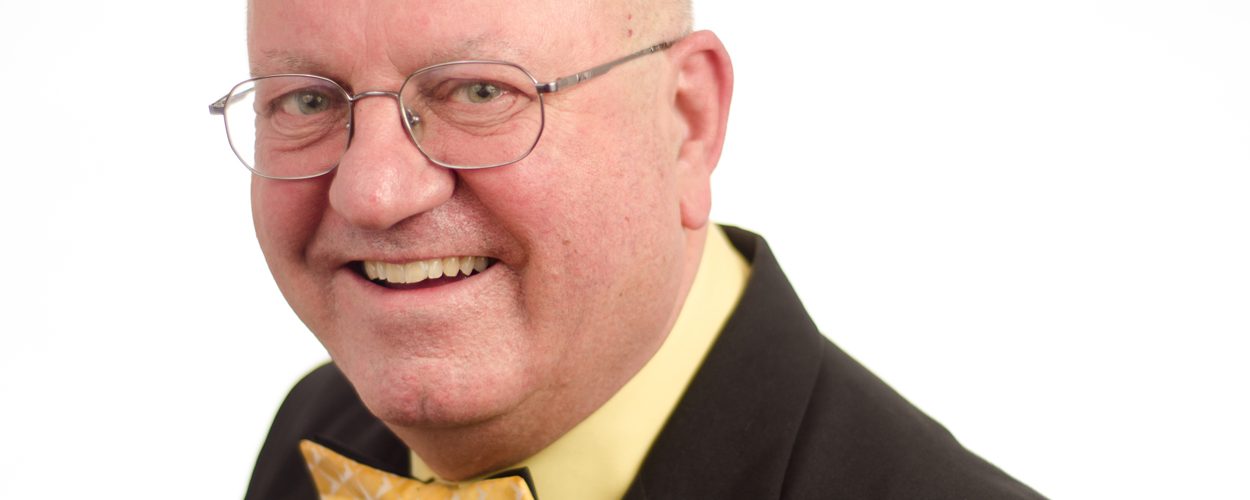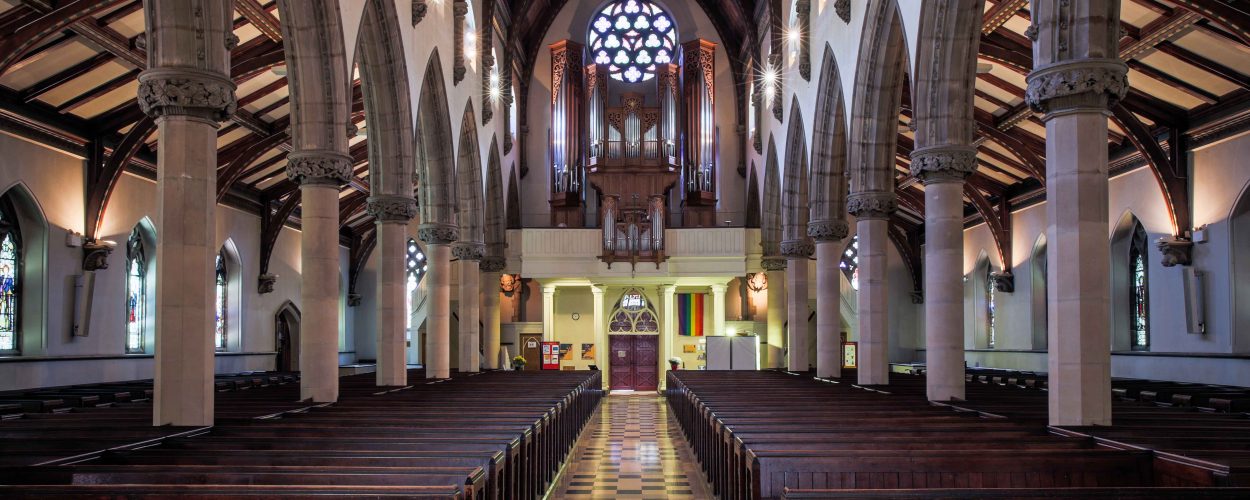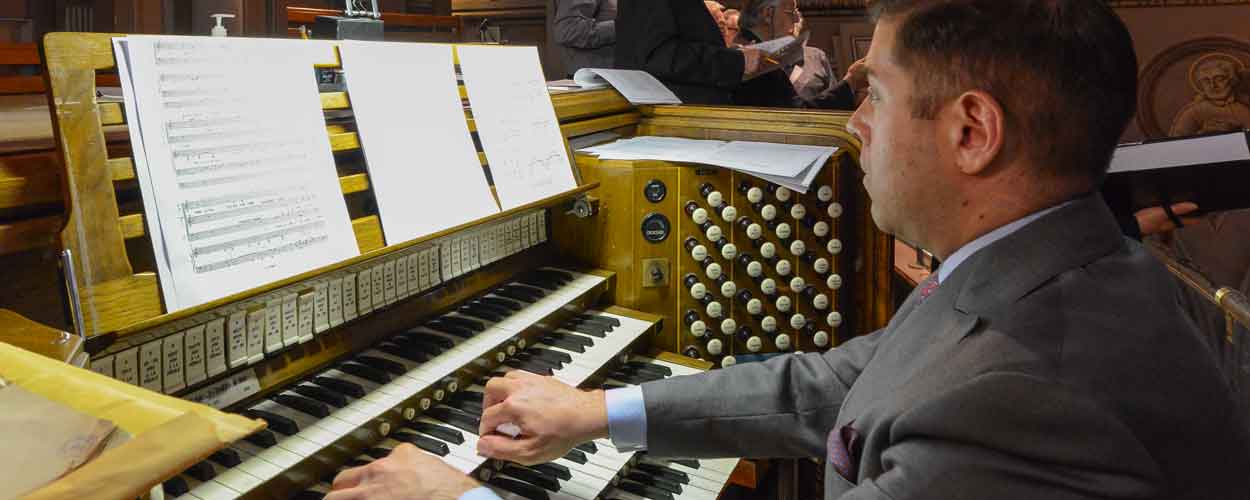As our concert “Montreal, City of 100 Bell Towers” approaches, we invite you into the world of a master of the mightiest instrument of all time. Patrick Wedd is titular organist of the organ of Christ Church Anglican Cathedral and is one of the three soloists in Saturday’s event. He was kind enough to answer a few questions we had for him.

First Part: The Organ
What are the basic qualities you look for in an organ?
Mechanical reliability comes first. The organist’s greatest fear is a mechanical problem during a concert, something like a cipher, which can simply ruin the performance of a work and even require interrupting a concert to remedy the situation. I am lucky that this has never happened to me! Flexibility of tone and fluidity of sounds blending are what matter the most to me. The tone colours of a well-built and finely tuned organ will bring out all the richness in the music.
Are there major differences between older organs and the more recently built ones?
The differences arise primarily from a buyer’s requirements. An organ designed for a certain style of music will have a sound typical to the era. An organ designed for a variety of musical styles will be more versatile. However, the organ remains a mechanical instrument: while newer models may be more technologically sophisticated, their construction calls for as much fine craftsmanship as older models.
Does an organ’s size affect its versatility and its sound?
No. An organ with two keyboards can be just as versatile as one with five keyboards. The skill and ingenuity of the builder is what fundamentally creates a versatile and acoustically colourful instrument that can successfully accommodate various musical styles. The organist’s skill and resourcefulness in drawing on an instrument’s special features also helps to bring out the organ’s full potential.
How about the space in which the organ is installed?
Yes, that significantly influences the sound. A large space will enhance the effect of the sound, while a smaller space will impart tones that are more intimate. If the organ builder succeeded in adapting the instrument to its environment, fine performances are possible in any space.
What is your favourite organ to play?
I quite enjoy the organ of the basilica of St. Joseph’s Oratory. It possesses a magnificent sonority. Every sound coming out of that instrument has its own individual beauty. The acoustics are fantastic, and there are a thousand and one ways to play around with its sounds.

Second Part: The Life of an Organist
Are organists typecast, in a way similar to actors?
Yes, but unlike actors who are often stereotyped by their profession, organists are architects of their own persona, through passion or commitment to a repertoire or style, and their desire to explore it in depth. An organist is recognized for her or his expertise. I work in place of worship, and therefore had to learn about a wide variety of music to adequately meet the needs of church services held there. Without being typecast (church music not being my sole repertoire), I am associated to it because I have gained an extensive knowledge of it.
How do you prepare to perform on an organ you have never played before?
One of the greatest joys and challenges of my profession is that every instrument is different. The organ is the only instrument for which design must be configured to the space in which it is played. The range of instruments and the different sounds they produce as a result are extremely diverse. A first experience with any given organ can be either delightful or unsettling. To prepare oneself, it is essential to have enough practice time with the instrument to get to know its specific attributes, to find one’s bearings, and to discover what the instrument has to offer in terms of harnessing the music. I had the privilege of getting twenty or so hours of practice time on the OSM organ in anticipation of this concert, a rare luxury!
What would you say is the minimum amount of time needed to familiarize yourself with an organ?
Eight to ten hours of practice is generally adequate. It depends on the concert’s length, the number of pieces, and the kind of repertoire performed. Some contemporary pieces are extremely varied in terms of content or rhythm, requiring the performer to choose the organ registration. This situation demands more practice time and extensive sound calibration. By comparison, the sounds in works of early music are generally uniform and registration is specified for each piece, which tends to reduce practice time.

If you enjoyed this brief foray into the organ world, we invite you to experience “Montreal, City of 100 Bell Towers”.
For this fantastic musical and visual adventure in collaboration with organists Rachel Laurin, Michel Bouvard, Patrick Wedd, and photographer Antoine Saito, every effort has been deployed to offer a Halloween-appropriate event bound to elicit shivers of emotion!
The concert Montreal, the city with the 100 bell towers will be presented at the Maison symphonique de Montréal on Saturday, October 28 at 8 pm.
Read more : CELEBRATE MONTREAL AND ITS 100 BELL TOWERS!



